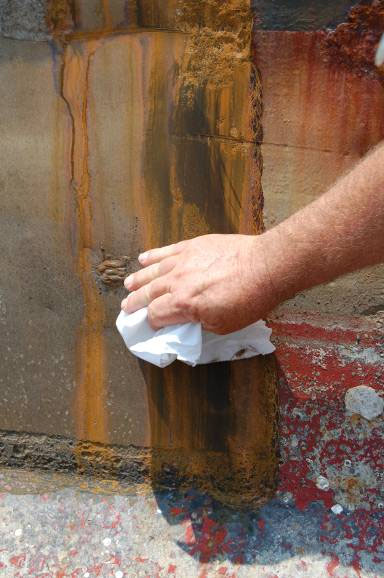Malcolm Adams: Part 2
For her part, Madge Gonzaga brought out her eyeglasses and fiddled with the thin folder in front of her, trying to decide what she thought of Malcolm Adams. On the surface he was an ordinary British business man who owned some minor oil interests in Nigeria as well as a small firm outside of London that manufactured radiation measurement devices for monitoring reactor safety. Contradicting her experience of male British reserve, Malcolm’s gray eyes were bold in their appraisal of her and betrayed a healthy sense of humor. His weathered appearance and sun bleached hair confirmed the information in her file that he was an experienced sailor who spent much of his spare time on the water. He even held a winning trophy as the skipper of a forty footer in the Melbourne to Hobart sailing event. As far as his professional life, a few published papers in reputable technical journals supported an in-depth understanding of civil and electrical engineering. The President had assured Madge that Adams was far more than he seemed, and given the President’s expertise in nuclear engineering, she was inclined to believe what he had told her.
But Gonzaga was suspicious by nature and the recent clash and adverse publicity over a request for information about UFO’s within the President’s inner group had left her with practical considerations concerning the President’s public image.
“Mr. Adams,” she shuffled the papers in the file in front of her, dropped them in order to twist a ring on her right hand, readjusted her glasses, and pursed her lips. “I’ve been tasked to ask your opinion concerning certain sensitive information in our possession. Your government has assured us that you will be able to cooperate in these matters, although, of course, we don’t desire to delve into security matters outside of our mutual interest.”
Adams nodded. “That’s as I understand it,” he replied. “I didn’t bring documentation with me, but everything I say can be confirmed by my superiors, if necessary.
He added, after a pause, “I should mention that we rely on your discretion. I’m sure that you are aware that until the relevant investigations are concluded, matters pertaining to a series of accidents in our nuclear power plants have to be kept from the public.” The corners of his mouth lifted slightly. “I think you may have had some of the same necessities in the interest of promoting practical public nuclear policy.”
Gonzaga gazed sourly back at him. “I’m not here to discuss our public policies with you, Mr. Adams.” She used her middle finger to poke her glasses higher on her nose.
“Of course,” the man apologized with a faint smile. “You’ll have your questions?”
Gonzaga’s eye’s narrowed as she glanced down to consult one of the pages in front of her. “You’re no doubt aware that we’ve started construction on several power reactors in various configurations,” she began. “There’s the Houston Light and Power facility that was begun last year, and the Three Mile Island Facility is in development. Now there’s the new facility near the Sabine River in Texas.”
Adams nodded, “Yes, I’ve been following developments. In fact, my company has submitted bids to provide specialized safety systems in each of these facilities, although,” a slight irritation crept into his voice, “your government has seen fit to make the bidding process considerably harder for companies outside of the States.”
The woman tapped her right index finger briefly against the table surface and fiddled with the frames of her glasses, a habit that might be bad for playing poker, Adams thought, but served here to emphasize her impatience.
“We’re simply being security conscious,” she spoke coolly.
“We could be helpful with that security if you’d consider easing things a little on our side,” he seemed to be questioning her.
“Ah, the negotiating point?”
He thought he detected amusement flicker in her eyes. “A minor consideration, perhaps.”
“Probably not,” she stated, “but duly noted.” She leaned back in the chair and waited.
He knew he’d have to be satisfied with her concession to the point. “So, how may I help you?” he broke into the silence.
Gonzaga decided to approach matters directly. “Tell me what you know about what the Russians are doing at Chernobyl.” If Adams were surprised, he didn’t show it.
Adams spread the fingers of his hands flat on the table. “You know how the Russians are. They make sophisticated plans but their execution is sometimes crude. They’re so sure of themselves that they are constructing their series of reactors without a containment facility.”
“We know,” Gonzaga referred to some notes in front of her. “Do you think it’s a cost saving measure?”
“Not really,” he replied. “I think it’s the Russian psyche. Containment would be a policy that recognized potential flaws. Their technical management structure insulates itself within political correctness which is the major danger to safe operation. Containment in our culture is a necessary reassurance and makes it seem like we’re catering to the human factor.”
“But we’re not,” Gonzaga looked curious, “actually concerned about the public?”
“We have had our problems like dumping radioactive waste into the Irish Sea,” he said, “and you have your Hanford facility, among others. Everyone is a lot less than perfect.”
“So, we share mutual culpabilities,” Gonzaga commented dryly.
(To be continued)
This is a work of fiction. All references to real names and places are accidental or are used for fictional purposes only.












December 20, 2014
Concrete Evidence, Feature